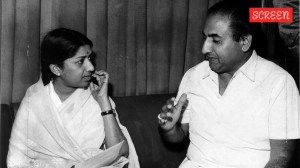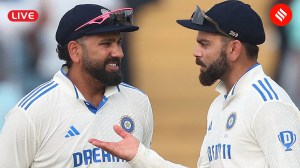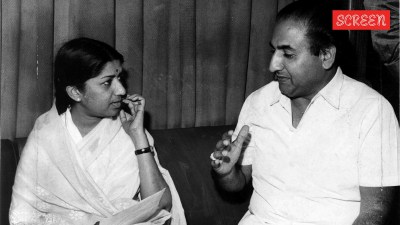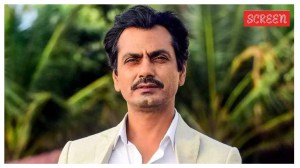After death row acquittal, why are three men seeking compensation in Supreme Court
Wrongful Conviction Case, Supreme Court Compensation Petition: The Supreme Court acquitted three men on death row this year. They have now moved the top court seeking compensation for the trauma suffered and the time lost due to their wrongful incarceration.
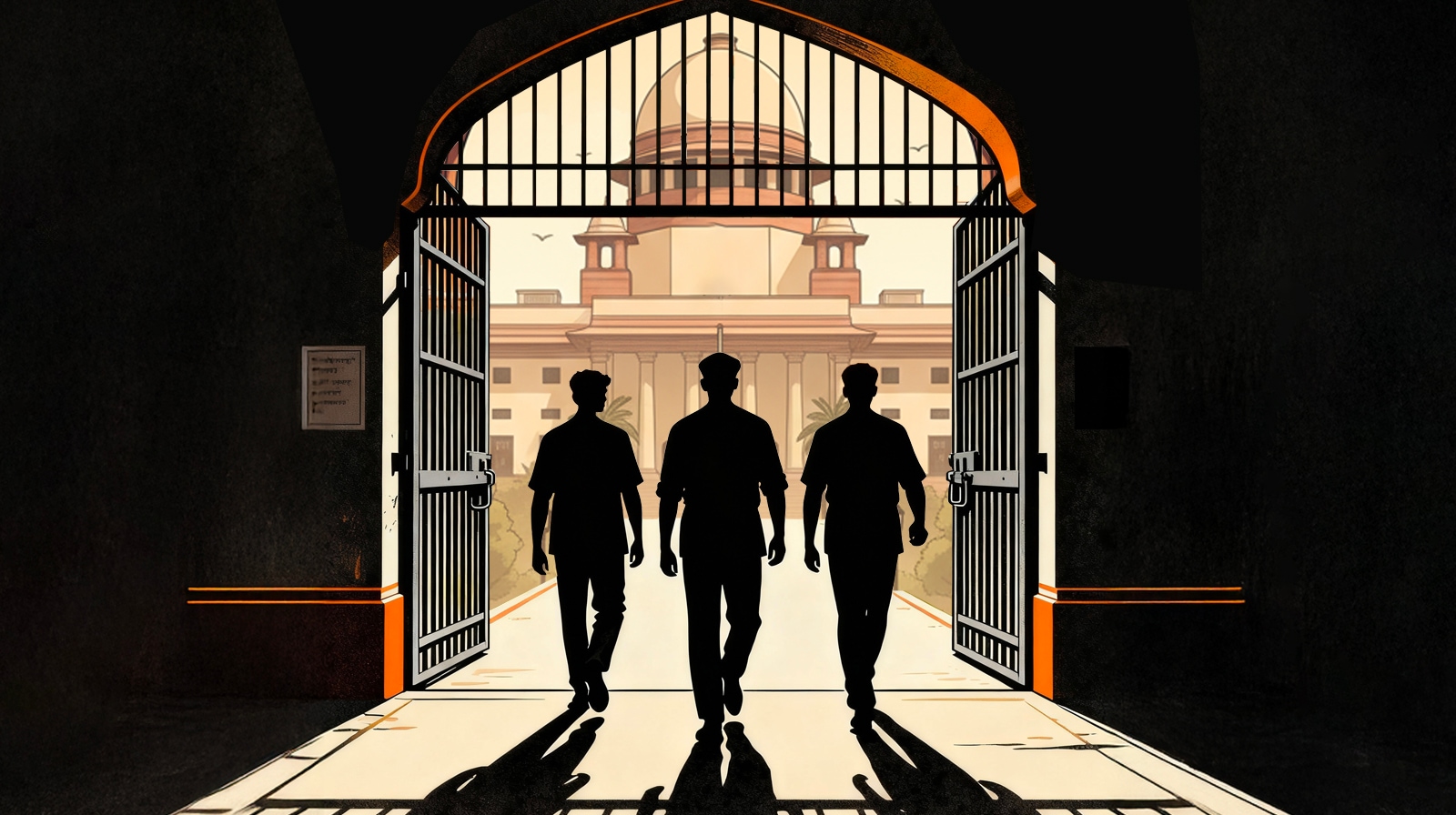 Three men acquitted of death penalty after long incarceration are seeking compensation in the Supreme Court. The image is generated using AI.
Three men acquitted of death penalty after long incarceration are seeking compensation in the Supreme Court. The image is generated using AI.Wrongful Conviction Case: After escaping the gallows and suffering years of trauma for wrongful incarceration, three men are seeking compensation in the Supreme Court for the time lost.
The Indian Express dives deep into the three lives whose freedom was curtailed owing to criminal cases. They were put on death row, but ultimately freed by the apex court this year.
Ramkirat Munilal Goud
As a child, Goud helped his parents in the agricultural fields immediately after school. He was the eldest among three siblings — a factor instilling in him a sense of duty and responsibility to provide for the family.
His plea reveals he had a couple of step brothers from his father’s first marriage, who lived separately.
In the year 2000, he dropped out of school at the age 15 to help reduce the financial burden on his father. He set up a stall and sold cotton candy, popcorn — the bulk of the meagre earnings from which went to his family in the village.
After being married off as a teenager, he switched jobs— from a welder to watchman—trying hard to improve the living conditions of his three children.
He was only trying to “meet his duty” as the family’s provider.
In 2013, however, an unexpected turn changed his life, permanently.
A police station in Thane had registered a kidnapping case on the complaint of a missing child’s father.
According to his petition filed in the apex court, this marked the beginning of Goud’s ordeal for he was framed in the case.
Case against Goud
On October 2, 2013, the minor girl’s body was found in a pond. The investigation led to Goud’s arrest at age 29. As an undertrial he was imprisoned in Central Jail, Thane—approximately 1,684 kilometre away from his village—making it very difficult for his family to visit him.
The top court’s acquittal verdict would later term it as “illegal and without a shred of evidence”.
Goud was convicted for rape and murder of the child under the provisions of the IPC and the Protection of Children from Sexual Offences Act.
A special judge in Thane sentenced him to death on March 8, 2019. The Bombay High Court confirmed the death penalty on November 25, 2021.
‘No basis for arrest’
The apex court acquitted Goud on May 7 and ordered his release. By the time he came out of prison on May 19, he had already spent 12.6 years in jail.
The release marked the first taste of freedom from custody post his arrest.
“He was not even able to get parole or furlough during this time. His children had never been able to visit him in prison,” his plea says.
The top court, acquitting Goud, noted, “The investigating officers did not even possess the barest evidence which could have pointed a finger of suspicion towards the accused appellant. Thus, the very foundation for arresting the appellant in this case is lacking.”
Prayer
Goud’s lawyers have argued that his conviction amounted to a wrongful conviction, as it was procured through a flawed investigation, besides fabricated evidence.
They outline the grave harms caused to his family and the loss of the precious 12 years of his life while being jailed for a crime he did not commit.
The actions of the investigation and prosecutorial agencies were labelled as a procedure “unknown to law”, that deprived his liberty for 12 years, in violation of Article 21 (protection of life and personal liberty) of the Indian Constitution.
“Appropriate compensation to him would be one of the ways to acknowledge and repair, to the extent possible, the harms done to him, as well as to cast accountability on the State actors who have caused this travesty of justice.”
Sanjay Sumru
Sumru began working as a daily wager as a child to support his family, sometimes earning a paltry Rs 80 per day.
As he did not have enough formal education, he wanted to pick up vocational skills to improve his employment prospects and moved out of his village.
After his parents passed away, he returned to his village to be closer to his siblings.
Case against Sumru
In February 2004, a four-year-old girl, whose father had employed Sumru, went missing from a wedding event. He helped in searching for the missing girl child. However, six days later, after the searches failed, he was alleged to have made an extra-judicial confession to the child’s family members.
The child’s body was allegedly recovered at Sumru’s instance. After this, Sumru was taken to the police station by the victim’s father.
He was convicted and awarded death penalty by a trial court in Uttar Pradesh for the rape and murder of the girl.
Following the trial court’s guilty verdict, the Allahabad High Court confirmed the death sentence awarded to him.
In 2006, his plea challenging the conviction and death sentence was dismissed by the Supreme Court.
Acquittal
After Sumru sought a review of the earlier decision, the Supreme Court agreed to re-hear his plea for wrongful incarceration.
Sumru was said to have escaped being executed “erroneously” largely due to unforeseen turn of events, mainly the inordinate pendency of his mercy petition for over 13 years.
Another reason, his lawyers pointed out, was due to the Supreme Court’s decision in a case, allowing mandatory oral hearings in review petitions filed in death sentence cases.
In February, Sumru was acquitted by the top court, which criticised the faulty investigation carried out in the case.
“The genesis of the entire prosecution case was doubtful. It was unbelievable that the deceased girl child remained missing for six days (from the evening of 22.02.2004, till the discovery of her body on 28.02.2004), yet no missing complaint was filed,” the Supreme Court said.
Prayer
Sumru has now sought compensation for the 20 years he spent behind bars in a case in which he was eventually exonerated.
The primary grounds his plea pointed out was “an unfair and biased investigation” conducted by the investigative agencies, which ultimately led to his illegal imprisonment.
He also argued that there was an unusually long delay in the decision on his mercy petitions, amounting to a violation of Article 21, which guarantees the right to life and personal liberty.
Furthermore, Sumru contended that his fundamental rights had been violated throughout the entire process.
Sumru was imprisoned when he was 24. Following this, his dream of working hard and pushing the family out of poverty came to an abrupt halt. He was shocked and fear gripped him when an officer informed him about his sentencing. He feared that he would be executed immediately.
He was completely unaware of the intricacies of the legal process and he could find no one who could explain it to him. However, he did not lose his sanity in prison, and instead requested to work in prison, despite death row prisoners not being allowed to.
His lawyers have argued that when Sumru was finally released on March 8, he was already 44, having lost 20 productive years of his life.
Coming from a life already marked by economic deprivation and social marginalisation, his prolonged wrongful incarceration “deepened his vulnerability” and worsened his existing difficulties.
Devakar Kattavelai
Kattavelai was one among the three siblings and his childhood was marked by both love and loss.
He suffered an early tragedy when he lost his infant sister. His family took care of the two siblings, showering them with affection, care, and love over the years.
However, growing up, he realised the struggles and challenges of his family.
Upon reaching adulthood, he married and had a child and hoped to build a better future.
Though he had limited resources, and struggled to make ends meet, he dreamt of providing a good life to his family.
The incident changed his life in 2011 and his personal life came crashing in the subsequent years following his arrest.
His marriage broke as his wife remarried whereas his child had to live with elderly grandparents who struggled daily for their livelihood with the challenges of growing age.
Kattavelai spent the next few years in prison fighting a battle that broke him with anxiety, loneliness, and the peril of leaving his aged parents and child on their own.
Case and imprisonment
In 2011, Kattavelai, a coconut harvester, was arrested with the charges of robbery, murder of two people, and rape of one of them.
A trial court in Tamil Nadu convicted and sentenced him to death following which the Madras High Court confirmed the capital punishment in 2018.
Subsequently, a trial court issued a death warrant against him in 2019, setting April 22 as the date of his execution.
Kattavelai challenged the death warrant, arguing the warrant was issued without any notice to him and issued before the exhaustion of legal and executive remedies. During the pendency of his challenge, the trial court withdrew the warrant.
‘Clean acquittal’
Among the various grounds taken by Kattavelai towards proving his innocence, he claimed before the apex court that he was kept in solitary confinement.
Upon a visit to the prison, his lawyer noticed several physical injuries and impact on his mental health.
The Supreme Court acquitted him underscoring the absence of the footing for his conviction.
It said the conviction had “no legs to stand on whatsoever” and despite that, he was “in custody for years”.
None of the circumstances that led to his conviction were observed to have been proved by the prosecution. His arrest, too, was shrouded in doubt, the top court found.
On July 16, Kattavelai was released and finally returned home after being incarcerated for 14 years, of which seven years were spent on death row.
Sufferings, prayer
Life outside prison has brought a new set of challenges for Kattavelai. His house lacks even the most basic necessity such as a toilet.
His lawyers argue that the money he earned in jail was used to buy cattle and with mounting medical needs for his family members, he is finding himself in a real predicament.
“The income he derives from the cattle is not enough for him to finance his son’s school fees, his mother’s health expenses, his house’s daily expenses, and the expenses to treat his own health problems.”
The release has done little to mitigate the situation as he suffers from eating and sleeping disorders.
The acquittal verdict, his plea said, held that the prosecution failed to “concretely” establish the circumstances of his arrest or identity as the perpetrator of the crime.
His confessions and subsequent recoveries besides the forensic evidence were also disregarded by the Supreme Court on account of being “suspicious and unreliable”.
Kattavelai says he is entitled to “rehabilitative damages as a palliative for the mental agony, physical injuries, and the loss of reputation” he has suffered.
Acting on their petitions, a bench of Justices Vikram Nath and Sandeep Mehta on October 28 issued notice on their petitions while posting the hearing on November 24.
“We would request the learned Attorney General or learned Solicitor General to assist this Court in these matters,” it said.
- 01
- 02
- 03
- 04
- 05



